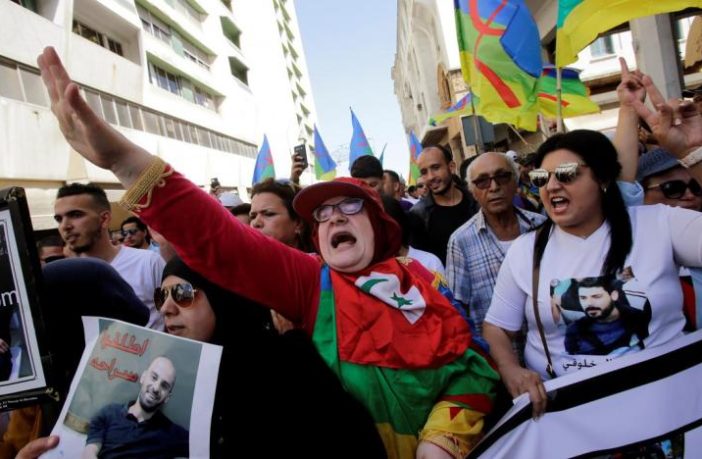Rabat- Asharq Al-Awsat
Relations between Morocco and the Netherlands seem to be heading towards further escalation.
On Saturday, Rabat prevented a training course on “national and international mechanisms to protect human rights activists” that was to be organized by an association in the city of Meknes (center), with the support of the Dutch embassy in Morocco.
In a phone call with Asharq Al-Awsat, Head of the National Association of Young Lawyers in Morocco Lahceb Bencheikh said the decision to ban the training course is rejected and harms Morocco’s image abroad.
“We booked a hotel to organize the training session, but we were surprised when the hotel manager told us about receiving orders from high authorities to cancel the activity.”
He expressed surprise from the decision issued by the authorities in Meknes, noting that similar activities were held in different cities and under the same conditions, yet they were not banned.
Bencheikh said the Association has organized earlier in February a course in Khemisset city (near Rabat), which was attended by lawyers from Algeria and Mauritania and 180 Moroccan lawyers, with the support of the Dutch embassy, yet he affirmed it was not stopped.
He indicated that this decision is “incomprehensible,” pointing out that the association has a joint work program with the Dutch embassy for a period of one year.
Other associations also have partnerships with the same embassy, and their activities are not prevented, he added.
The Moroccan authorities’ decision comes days after Rabat announced its strong rejection of foreign intervention in its internal affairs.
Minister of Culture, Youth, and Sports Hassan Abyaba, spokesperson of the Moroccan government, stressed in a previous press interview his country’s total rejection of any foreign intervention.
His comments were in response to a report prepared by a delegation from the Dutch parliament on the detainees of Hirak al-Rif protests, after meeting with their families on January.
“We are a sovereign country, and we don’t accept from any party to make reports on Morocco and its internal issues with the aim of putting pressure on its authority,” he said.
According to observers, Moroccan authorities’ decision to prevent the session comes in line with its response to the Netherlands’ moves to pressure Morocco from within the European Union in regards to Hirak al-Rif protests.
Rabat considers the issue an internal matter in which no external party has the right to interfere.







